Md. Lisul Islam
FGPGA: An Efficient Genetic Approach for Producing Feasible Graph Partitions
Nov 17, 2014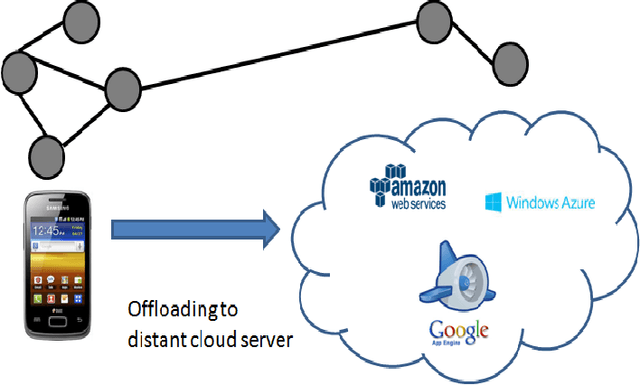
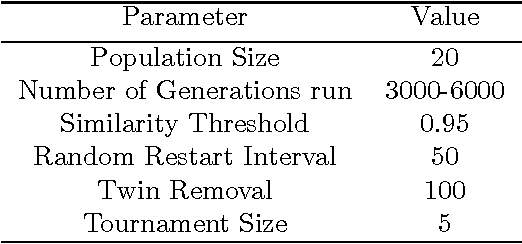
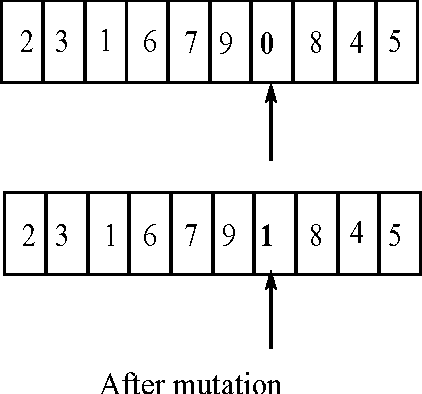
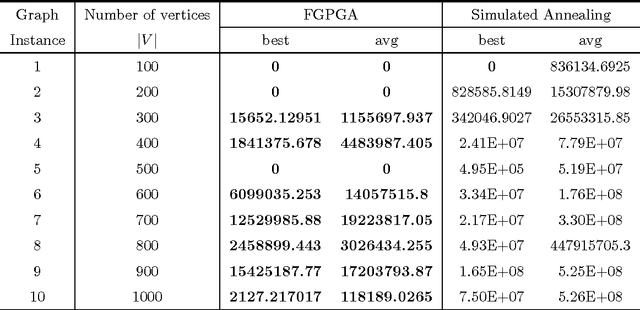
Abstract:Graph partitioning, a well studied problem of parallel computing has many applications in diversified fields such as distributed computing, social network analysis, data mining and many other domains. In this paper, we introduce FGPGA, an efficient genetic approach for producing feasible graph partitions. Our method takes into account the heterogeneity and capacity constraints of the partitions to ensure balanced partitioning. Such approach has various applications in mobile cloud computing that include feasible deployment of software applications on the more resourceful infrastructure in the cloud instead of mobile hand set. Our proposed approach is light weight and hence suitable for use in cloud architecture. We ensure feasibility of the partitions generated by not allowing over-sized partitions to be generated during the initialization and search. Our proposed method tested on standard benchmark datasets significantly outperforms the state-of-the-art methods in terms of quality of partitions and feasibility of the solutions.
GreMuTRRR: A Novel Genetic Algorithm to Solve Distance Geometry Problem for Protein Structures
Nov 16, 2014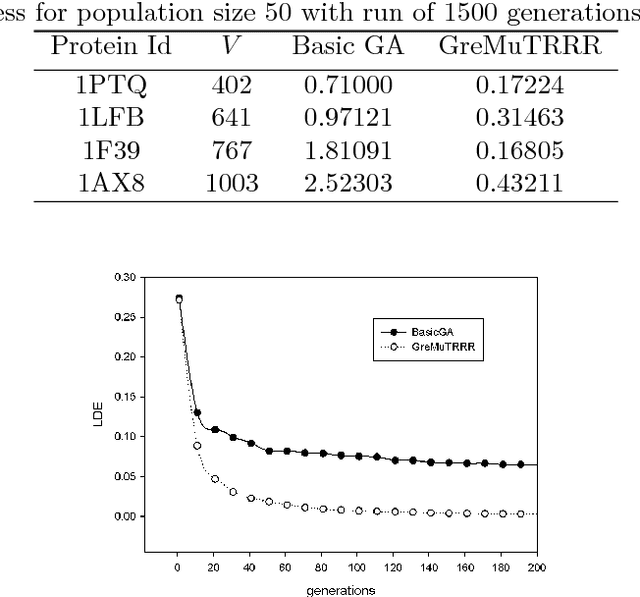
Abstract:Nuclear Magnetic Resonance (NMR) Spectroscopy is a widely used technique to predict the native structure of proteins. However, NMR machines are only able to report approximate and partial distances between pair of atoms. To build the protein structure one has to solve the Euclidean distance geometry problem given the incomplete interval distance data produced by NMR machines. In this paper, we propose a new genetic algorithm for solving the Euclidean distance geometry problem for protein structure prediction given sparse NMR data. Our genetic algorithm uses a greedy mutation operator to intensify the search, a twin removal technique for diversification in the population and a random restart method to recover stagnation. On a standard set of benchmark dataset, our algorithm significantly outperforms standard genetic algorithms.
 Add to Chrome
Add to Chrome Add to Firefox
Add to Firefox Add to Edge
Add to Edge